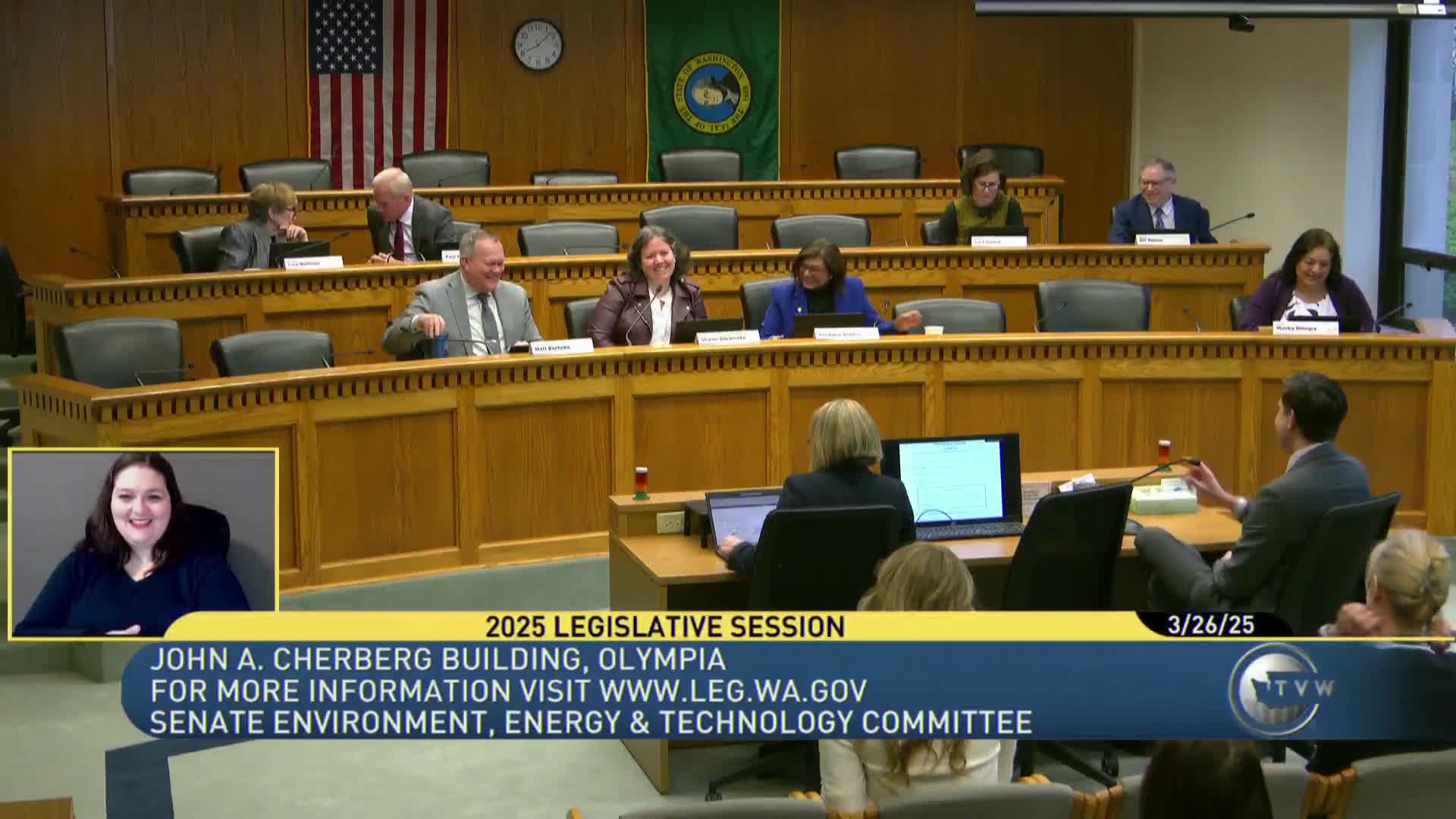Article not found
This article is no longer available. But don't worry—we've gathered other articles that discuss the same topic.
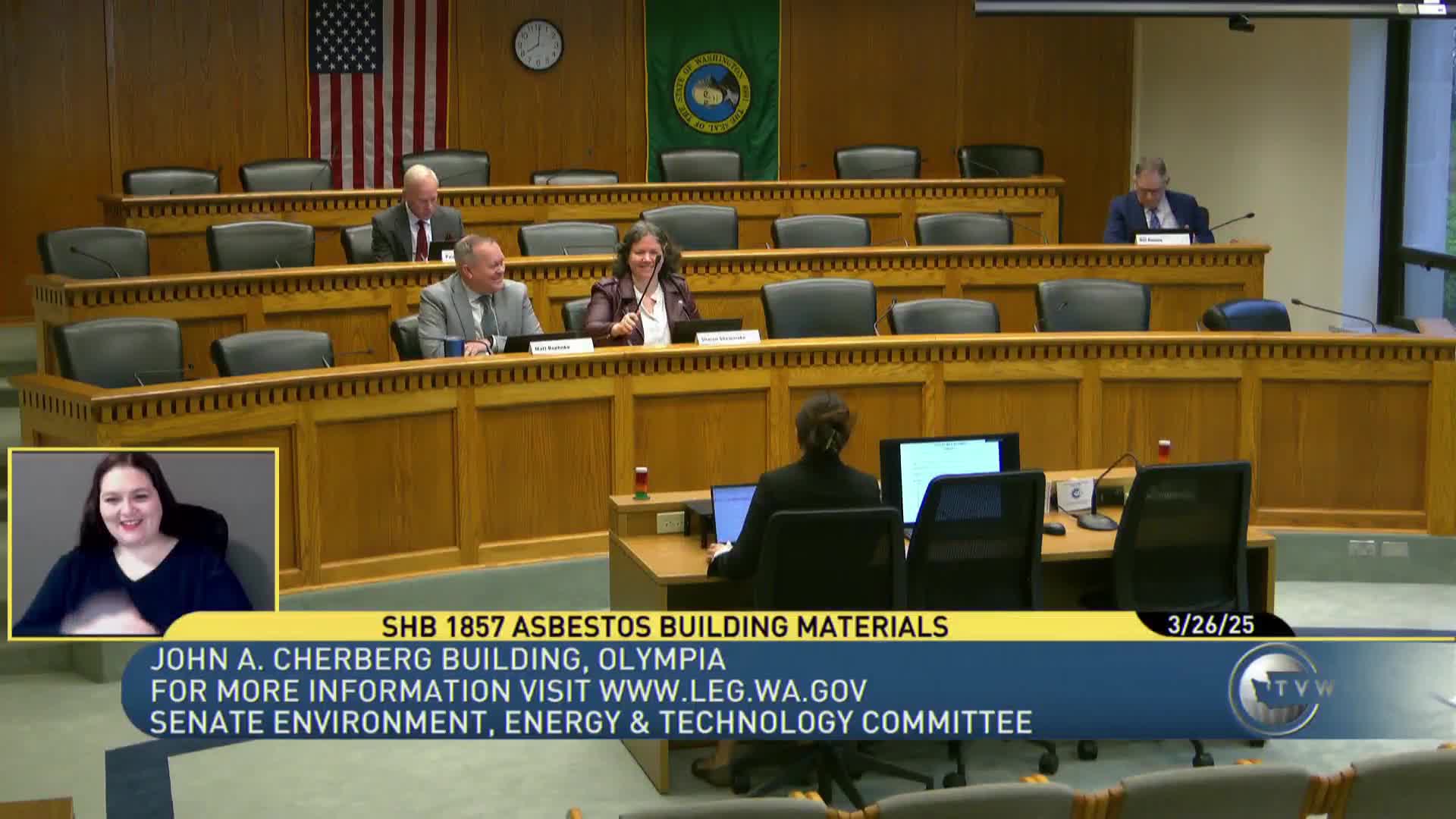
Senate committee hears bill to exempt low‑asbestos commercial aggregates from some labeling and inspection rules
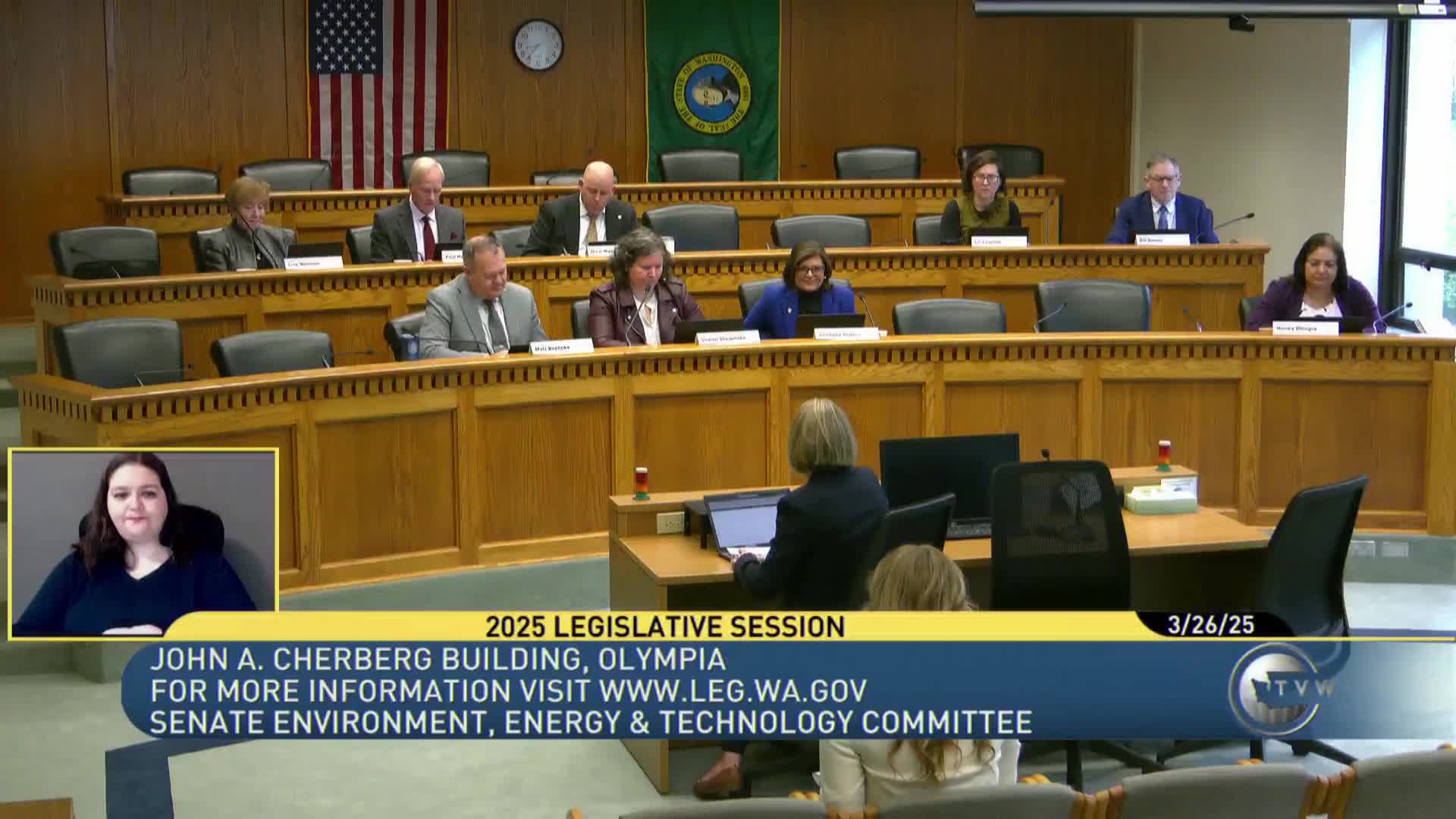
Senate committee hears bill to speed reconductoring by creating categorical SEPA exemption for certain upgrades
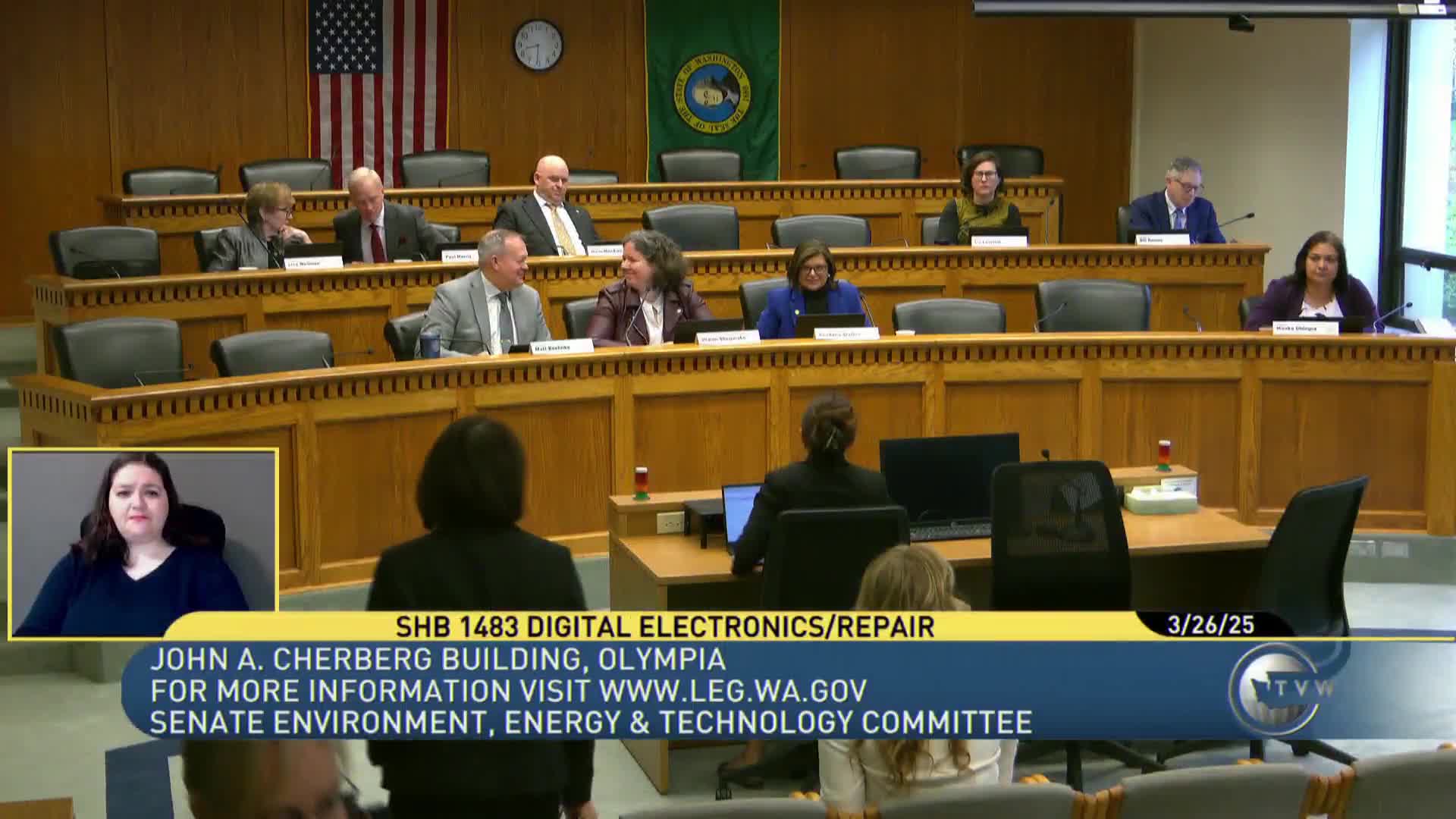
Right‑to‑repair bill receives broad support at Senate hearing after House passage
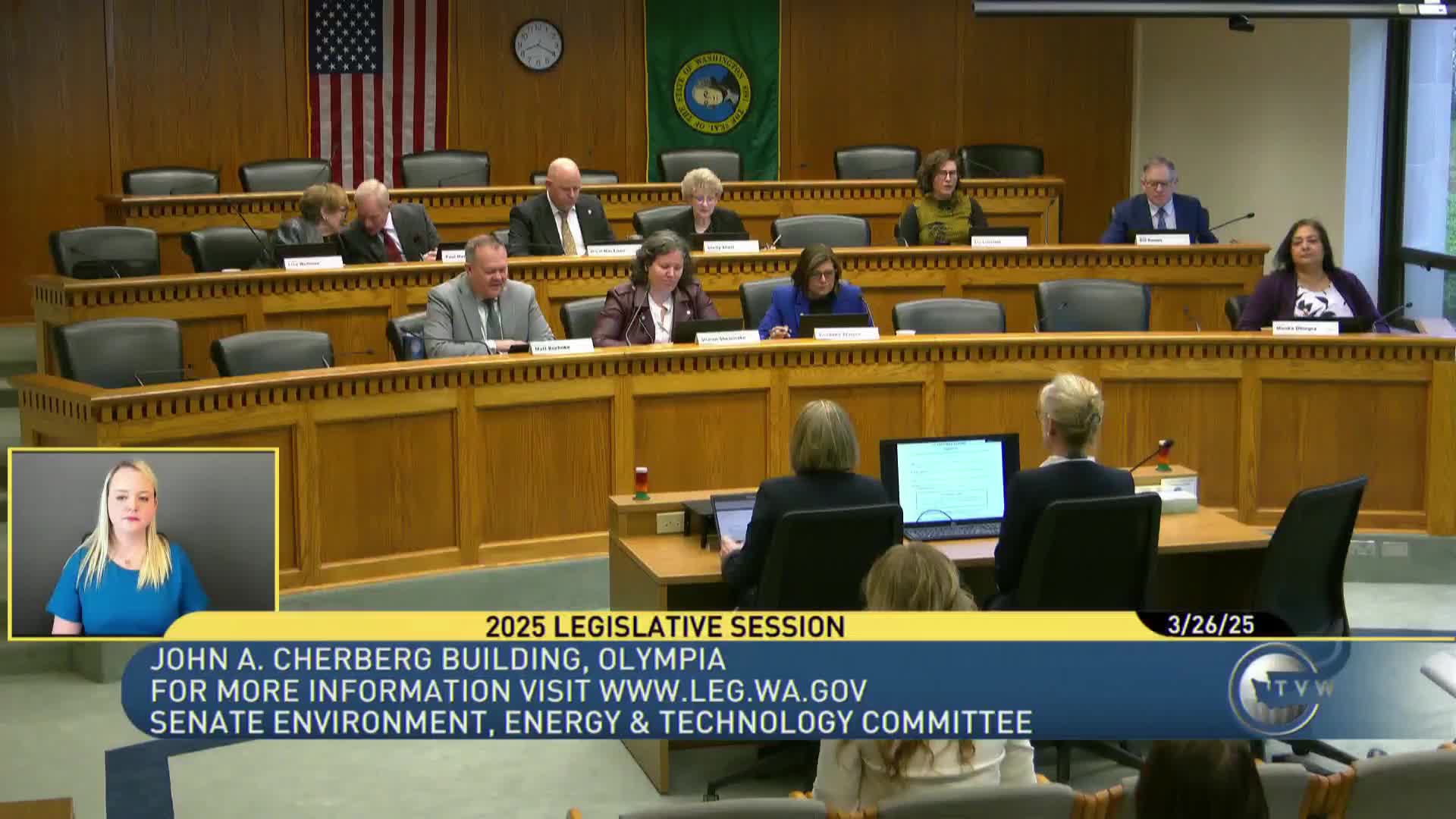
Bill would direct JLARC to report on state agency costs to comply with clean buildings performance standard
